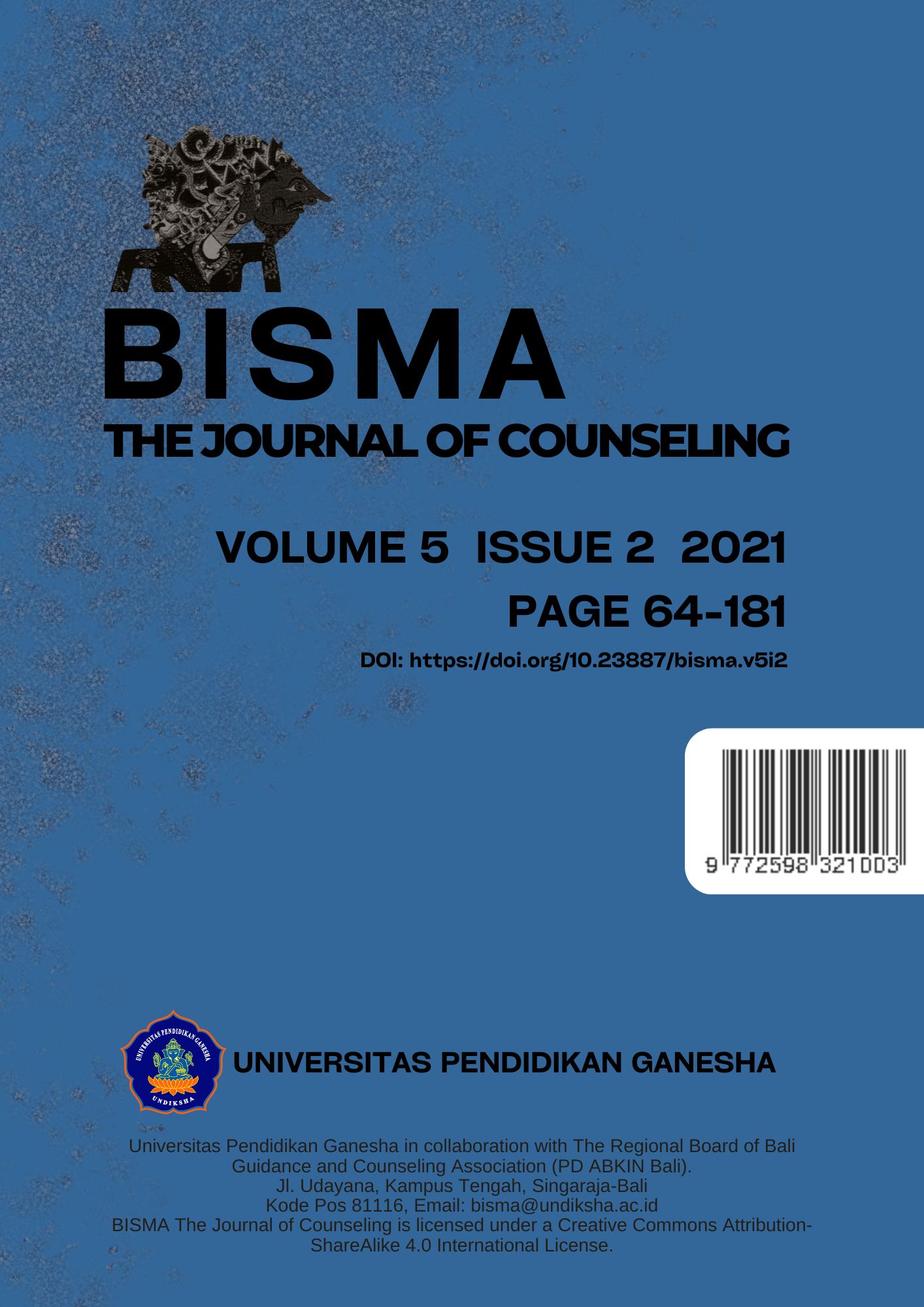Parenting Style Influencing Emotions and Attitudes Among Gifted and Talented Students
DOI:
https://doi.org/10.23887/bisma.v5i2.40160Keywords:
Attitudes, emotions, gifted and talented students, parenting stylesAbstract
The development of emotional intelligence is formed as a result of various aspects and one of them is through social interaction among the family. This study aims to see the trend or parenting style that can influence attitudes and emotions among clever students. The focus of this study is to identify the emotional problems and attitudes of clever students, as well as to identify parenting styles that affect the emotions and attitudes of clever students. This study was carried out following the hypothesis that there was no correlation between the emotional problems of the clever students and parenting style, and there is no correlation between the problems of the attitude of the clever students with the parenting style. This is a cross-sectional study, using a non-standard questionnaire built by the researcher, which researchers obtained information on parenting styles that influenced emotions and attitudes among clever students in three high-performance schools in Kuching, Sarawak. The population of the study involved 60 students of various levels from three outstanding academic achievers in Kuching, Sarawak, randomly selected. The implications from this study, parents will be able to see and explore every one of the parenting styles that will affect the emotions and attitudes of children, thus improving themselves in giving the best love for children.References
Amy, Loh Siew Mei (2000). Hubungan Antara Amalan Kekeluargaan Dengan Masalah Sosial Di Kalangan Pelajar Pusat Pengajian Sains Tulen USM, Pulau Pinang. Tidak diterbitkan. Tesis Sarjana Muda. Universiti Teknologi Malaysia, Skudai.
Azizi Yahaya dan Jaafar Sidek Latif (2006). Siri Kaunseling: Membentuk Identiti Remaja. (Cetakan Kedua). Bentong: PTS Professional Publishing Sdn. Bhd
Azizi Yahaya, Shahrin Hashim & Mascilla Hamzah (2009). Masalah Salah Laku Agresif dalam Kalangan Pelajar Sekolah Rendah dan Hubungannya dengan Gaya Keibubapaan. Fakulti Pendidikan, Universiti Teknologi Malaysia, Johor.
Hamidah Sulaiman (2013). Hubungan Antara Kecerdasan Emosi Dengan Gaya Asuhan Ibu Bapa Dalam Kalangan Remaja Sekolah. Universiti Malaya.
Kimberly Kopko. 2007. Parenting Styles and Adolescents. Cornell Cooperative Extension.
Loeber, R. and Farrington, D. P. 2000. Young Children Who Commit Crime : Epidemiology, Developmental Origins, Risk Factors, Early Interventions, and Policy Implications. Development and Psychopathology. 12(4): 737–762
Mohd Majid Konting (1993). Kaedah Penyelidikan Pendidikan. Kuala Lumpur: Dewan Bahasa dan Pustaka.
Mustafa Hj. Daud (1997). Institusi Kekeluargaan Islam. (Cetakan Ketiga). Kuala Lumpur: Dewan Bahasa dan Pustaka
Noorzihan Mohamed Yin. 2004. Kenakalan Remaja dari Perspektif Islam dan Barat. Yayasan Dakwah Islamiah Malaysia, 26.06.2004. Retrieved on 10 Sept 2008, from http://www.yadim.com.my/Remaja/Remaja
Rosmah Dain. 2004. Personaliti anak - Keluarga kumpulan penting bentuk peribadi. Portal Pendidikan Utusan, 12.08.2004. Retrieved on 5 Sept 2008, from http://www.tutor.com.my
Samira Salimynezhad, Nahid Yusef Poor & Asma Valizade. 2015. The Studies of Relationship between Parental Styles with Emotional Intelligence in Elementary Schools Students of MAKOO. 6th World conference on Psychology Counseling and Guidance, 14 - 16 May 2015
Zulkiple Ibrahim. 2007. Sikap kurang ajar anak: Ibu bapa patut dipersalahkan? mSTAR Online, 14.06.2007. Retrieved on 8 Aug 2008, from http://www.mstar.com.my
Z Mahmud, AR Habib & S Amat (2001). Pendedahan Kendiri : Perkara Yang Diceritakan Oleh Remaja Kepada Ibu Bapa. Jurnal Pendidikan (UKM).









